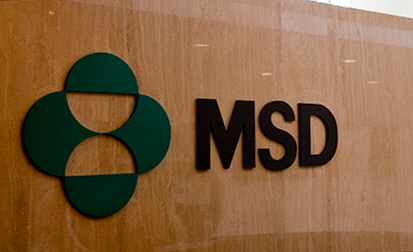Except for Novartis, other multinationals discontinued monitoring

After Korea Biomedical Review’s exclusive report revealed that MSD Korea collected personal talks of doctors at product briefings through the Self-Assurance program, the company refuted that other multinational pharmaceuticals also had a similar monitoring scheme.
However, KBR has learned that five other multinational pharmaceutical firms – Sanofi-Aventis Korea, Boehringer Ingelheim Korea, AstraZeneca Korea, Pfizer Korea, and BMS Korea – do not have such a program. Only Novartis Korea had one.
The five multinationals were merely encouraging employees to follow the compliance program (CP) through internal training, instead of external monitoring.
“Our company keeps informing workers to follow CP rules through regular education,” an official at a multinational drugmaker said. “CP was a major issue from several years ago, so the company is very serious about it. However, we didn’t create an external monitoring program. I don’t think there is any drug company that hires an external agency to monitor its employees.”
Novartis Korea, which also runs a monitoring program at a product briefing, said the monitoring is only about merely checking whether the company’s salespersons spent expenses for meals and drinks under the fair-trade rules.
The company does not monitor what kind of talks physicians had, it said. If an unexpected case occurs due to a salesperson’s mistake or an unexpected situation, the company does not punish but encourage the worker to follow the CP rules, the company added.
A significant number of officials at other multinationals said they could not understand why MSD Korea would insist on keeping the highly intrusive monitoring program.
“In the past, several companies operated a similar system, but they soon got rid of it because the system was so problematic," said an official at a multinational pharmaceutical company. "Running such a monitoring program is like threatening workers the company would fire them if they don’t listen to every word of the company.”
The official went on to say that MSD Korea’s salespersons would have no choice but to hold product briefings anyway because the events are directly related to their sales performance.
However, such excessive monitoring would discourage the salespersons’ activities, he added.
An official at another multinational said it was right, but it was excessive to take issues with doctors’ comments. “If that happened in our company, all of our employees would boycott their activities,” he said.
Korean units usually make excuses saying they were only following the guideline given by their headquarters, but it is the Korean unit that operates such program based on the directive, she added.
MSD Korea’s external monitoring program has discouraged employees’ morale. In the “Voice Survey,” a global employee opinion survey carried out by MSD every year, MSD Korea’s score went down by 10 percentage points in 16 evaluation sections last year, compared to two years ago.
Scoring 10 percentage points lower in the Voice Survey meant that the Korean unit almost received a warning from the headquarters, sources said. Compared to other MSD units in other countries, MSD Korea’s score was about 30 percentage points lower on average, they said.
Angered by the company’s monitoring policies, MSD Korea employees formed a labor union late last year to demand improvements.
“I hope the company could admit the complaints about the Self-Assurance program and the results of the Voice Survey and make some efforts to do better,” an official at MSD Korea said. “We don’t want a quick resolution but a sincere response from the company.”
MSD Korea said it would revise the Self-Assurance program “to meet the Korean situation.”
“To physicians, we apologize for the concerns and inconveniences caused by our internal program that initially started to give a product presentation transparently and ethically,” MSD Korea said in an email to Korea Biomedical Review.
The company internally records and reviews a situation where there might be a problem under the Pharmaceutical Affairs Act and fair competition rules. “The record and review subjects may include some of the doctors’ comments, but we never record physicians’ conversations or collect any information related to personal information,” the company said.
MSD Korea emphasized it would revise the Self-Assurance program to minimize physicians’ inconvenience and achieve its original goal.

